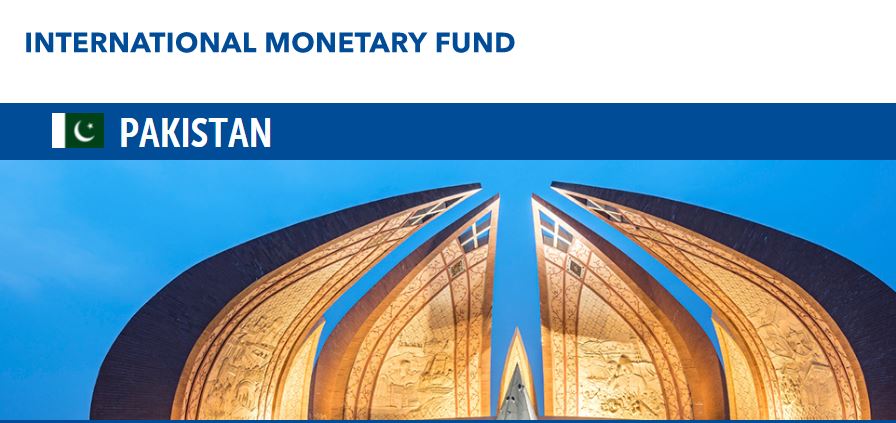If your query is IMF loans to Pakistan history and current prospects,this article will solve your query.
Pakistan has been a member of the International Monetary Fund (IMF) since 1950. Due to the unpredictability of the economy and heavy dependence on imports, the IMF has extended loans 22 times since Pakistan joined, most recently in 2019.
There are two types of IMF loan programs. The General Resources Account (GRA) and the Poverty Reduction and Growth Trust Fund (PRGT) are for less poor to rich countries, while the PRGT is for poorer countries. Economists usually refer to SRAs as bailouts. Based on these classifications, Pakistan has been bailed out 13 times since joining, most frequently under the Imran Khan government in 2019.
Table of Contents
IMF loans to Pakistan History
The new Pakistan, which gained independence from British India in 1947, joined the IMF in 1950 because it was experiencing financial difficulties.
In 1958, Pakistan turned to the IMF for assistance for the first time. On December 8, 1958, the IMF granted Pakistan a $25,000 stand-by arrangement. In 1965, Pakistan turned to the IMF again. Three years later, Pakistan turned to the IMF for the third time for the balance of payments problems and received $75,000 on October 17, 1968.
In 1971, Pakistan lost the eastern half of East Pakistan in the Bangladesh Liberation War. This war resulted in great losses to Pakistan. As a result, Pakistan received $84,000 in 1972, $75,000 in 1973, and $75,000 in 1974 to meet its growing needs. In 1977, an emergency agreement was reached for $80,000. Three years later, in 1980, a loan of $340,000 was granted. Since Pakistan was already involved in the U.S. Cold War against the Soviet Union, it withdrew another $730,000 and the fighting continued.
In 1993, the government of Benazir Bhutto came to power and her government revisited the IMF and on September 16, 1993, approved to an $88,000 stand-by arrangement. Her government’s mismanagement continued and she borrowed $123,200 under the Extended Fund Facility and another $172,200 on February 22, 1994. [When Benazir Bhutto returned to power in 1993, her government again approached the IMF and agreed to an $88,000 stand-by arrangement on September 16, 1993. On September 16, 1993, the IMF agreed to an $88,000 stand-by arrangement. During this time, Pakistan’s economy continued to be in poor shape, and Pakistan was forced to apply to the IMF for the third time during the Bhutto regime. It was also described as the most corrupt government in Pakistan’s history. At that time, Pakistan received $294,690 on December 13, 1995.
In 1997, Nawaz Sharif came to power. The government of Benazir Bhutto was ousted on corruption charges, and Pakistan’s economy floundered. For the first time, the Sharif government went before the IMF in an emergency situation and agreed to provide two amounts, $265,370 and $113,740, on October 20, 1997.
In 2008, Yousaf Raza Gilani received a $7.6 billion loan from the IMF.
In 2018, Imran Khan became the prime minister of Pakistan. To that end, he arranged friendly loans from Saudi Arabia, the United Arab Emirates, and China and avoided tough IMF conditions. In 2019, as the economic situation worsened, they turned to the IMF for the twentieth time for a $1 billion loan. The IMF granted the loan based on conditions such as higher energy tariffs, elimination of energy subsidies, tax increases, privatization of public institutions, and budget adjustments.
Clarification on the article published in the Express Tribune titled “Cabinet approves $4,200 Saudi loan package”.
Referring to the news item published in The Express Tribune titled “Cabinet approves $4,200 Saudi loan package”, it was clarified that in these difficult times, deposits and oil facilities speak of a strong brotherhood between Pakistan and Saudi Arabia. The interest rates are 4 percent and 3.5 percent, respectively. The interest rates are 4 percent and 3.8 percent respectively.
Since the deposit is a demand deposit, the depositor has the right to claim the deposit. It is therefore normal for all deposits to contain this clause.
Finally, all MOUs contain a dispute resolution clause that refers to the applicable local law. However, this does not mean that the sovereignty of the country is eroded.
We thank the Kingdom of Saudi Arabia for once again rescuing us from our situation.
Clarification – In response to the article “Rupees 400 billion worth of irregularities uncovered in Prime Minister’s Covid package” published in The Express Tribune.
In response to an article published in The Express Tribune titled “Irregularities worth 400 billion rupees in Prime Minister’s Covid package uncovered,” it was clarified that the report on Covid spending is part of the overall audit report for 2020 prepared by the Directorate General of Audit. The report has already been submitted to Parliament. Therefore, the report is already publicly available.
Last year, the IMF provided $1.4 billion in emergency assistance. The Board conducted a special audit of the Covid-related disbursements.
The exact wording of the structural reference is as follows.
The Auditor General of Pakistan will conduct an ex-post audit of the procurement of urgently needed medicines related to Covid 19. The results of the audit will be published on the Ministry of Finance website.” Structural benchmarks should be achieved by April 2021.
The sections included in the Covid related expenditure report have already been discussed by the relevant departments/organizations with the officials of the Auditor General of Pakistan and the sectoral audit committee. The responses of the departments/organizations to each perspective/paragraph have been included in the report.
The report was discussed in detail with the IMF by the officials of the Auditor General of Pakistan in June 2021, and during the recently completed sixth review, the IMF was satisfied that there were no instances of fraud or misappropriation. Most of the paragraphs and observations in the report relate to procedural deficiencies due to emergency procurements; the IMF was also told that the department and the organization have identified these deficiencies and taken corrective action.
The report, which has already been submitted to Parliament and is available to the public, was posted on the website as a prelude to the recently completed sixth review under the IMF’s EFF.
In addition, the government strongly believes in and is committed to transparency and accountability.
Also Visit,

Oliver is a professional blogger and a seasoned business and finance writer. With a passion for simplifying complex financial topics, he provides valuable insights to a diverse online audience. With four years of experience, Oliver has polished his skills as a finance blogger.



